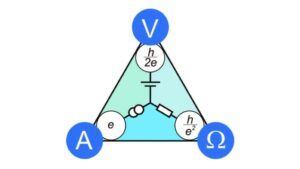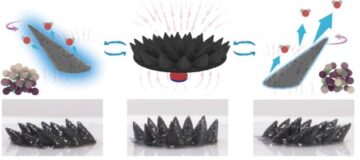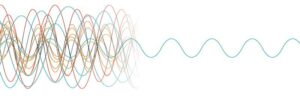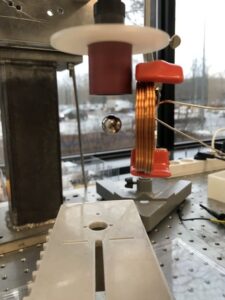
A total of 10 physics PhD students from across the UK have been unveiled as the 2023 awardees of the Bell Burnell Graduate Scholarship Fund. The fund aims to improve diversity in physics by offering scholarships to PhD students from groups currently underrepresented in the physics research community. The 10 new awardees takes the number of physics PhD students supported by the fund to 31.
The fund was originally set up by the astrophysicist Jocelyn Bell Burnell in 2019 after she won the Special Breakthrough Prize in Fundamental Physics for her role in the discovery of pulsars. Bell Burnell donated her entire £2.3m prize to set up the scholarship programme, which is run by the Institute of Physics (IOP), which publishes Physics World.
The 2023 awardees include Alix Freckelton from the University of Birmingham, Astra Sword (Open University), Clara Cafolla-Ward (Cardiff University), Karolina Szewczyk (University of Leeds), Lauren Muir (University of Glasgow), Raymond Isichei and Xinran Yang (Imperial College London), Rojita Buddhacharya (Liverpool John Moores University), Shideh Davarpanah (University of Portsmouth) and Sinéad Mannion (Queen’s University Belfast).

Breaking barriers and opening up physics – the growing impact of the Bell Burnell Graduate Scholarship Fund
“Wherever we look there are problems that need physicists to help solve them and the more diverse we can make the population of physics researchers and innovators the more effective and creative it will be,” says Rachel Youngman, deputy chief executive of the IOP. “Already students who have been supported are working across the UK in academia and business helping us solve some of the most important challenges of our times, in low carbon energy, medical sciences, computing and many, many other areas.”
Helen Gleeson from the University of Leeds, who is chair of the fund committee, notes that the standard of applications for the fund gets higher each year. “The 10 successful applicants have all done incredibly well,” she adds. “There is no doubt that physics will provide the scientific applications and solutions to so many of the problems we face in our society and economy today and these Bell Burnell award winners will be at the very heart of that work.”
- SEO Powered Content & PR Distribution. Get Amplified Today.
- EVM Finance. Unified Interface for Decentralized Finance. Access Here.
- Quantum Media Group. IR/PR Amplified. Access Here.
- PlatoAiStream. Web3 Data Intelligence. Knowledge Amplified. Access Here.
- Source: https://physicsworld.com/a/winners-announced-for-the-2023-bell-burnell-graduate-scholarship-fund/
- :is
- $UP
- 10
- 2019
- 2023
- 31
- a
- AC
- Academia
- across
- Adds
- After
- aims
- All
- and
- announced
- applicants
- applications
- ARE
- areas
- AS
- Astra
- At
- award
- barriers
- BE
- been
- Bell
- breakthrough
- business
- by
- CAN
- carbon
- Chair
- challenges
- chief
- Clara
- College
- committee
- community
- computing
- Creative
- Currently
- deputy
- discovery
- diverse
- Diversity
- done
- doubt
- each
- economy
- Effective
- energy
- Entire
- executive
- Face
- For
- from
- fund
- fundamental
- graduate
- Group
- Group’s
- Growing
- Have
- Heart
- help
- helping
- her
- higher
- HTTPS
- image
- Impact
- Imperial
- Imperial College
- Imperial College London
- important
- improve
- in
- include
- incredibly
- information
- innovators
- issue
- IT
- John
- jpg
- left
- London
- Look
- Low
- make
- many
- max-width
- medical
- more
- most
- Need
- New
- no
- Notes
- number
- of
- offering
- open
- opening
- originally
- Other
- our
- Physics
- Physics World
- plato
- Plato Data Intelligence
- PlatoData
- population
- prize
- problems
- programme
- provide
- Publishes
- research
- researchers
- Role
- Run
- says
- SCIENCES
- scientific
- set
- she
- So
- Society
- Solutions
- SOLVE
- some
- special
- standard
- Students
- successful
- Supported
- takes
- that
- The
- the UK
- Them
- There.
- These
- thumbnail
- times
- to
- today
- top
- Total
- true
- Uk
- underrepresented
- university
- us
- very
- was
- we
- WELL
- which
- WHO
- will
- winners
- with
- Work
- working
- world
- year
- zephyrnet













